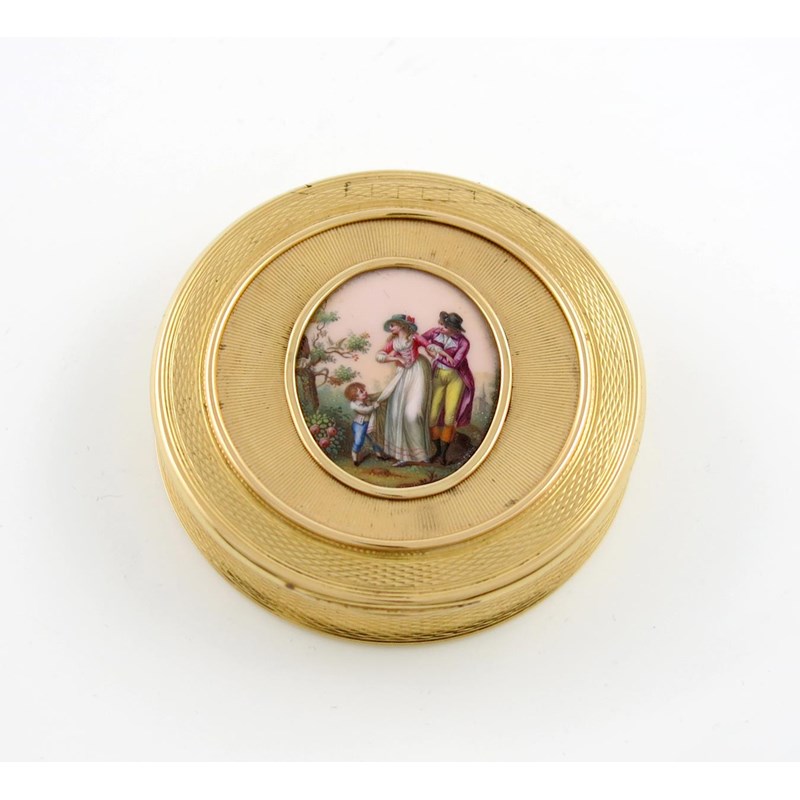A Private Collection of Snuff Boxes & Bonbonnières - 25 Apr 2017
A George III eighteen carat gold and enamelled box
A George III eighteen carat gold and enamelled box,
by Alexander James Strachan, London 1806,
circular form, the hinged cover set with an enamelled pastoral panel of a young couple with their son attracting their attention to nesting doves, on a gold ground within an engine-turned border, the convex sides and base with similar engine-turning, the underside of the cover with a crest dated June 1794 and bearing the Order of Bath, diameter 7cm, weight 99.5gms.
The crest was granted by Sir William Betham, Ulster King of Arms (1820-53) to Vice Admiral Sir Ross DONNELLY, RN who was invested KCB (military) on 17 March 1837.
The date inscribed within the crest, June 1794, was of great significance to Donnelly: The Glorious First of June (also known as the Third Battle of Ushant, or Bataille du 13 Prairial) was the first and largest fleet action of the naval conflict between Great Britain and the First French Republic during the French Revolutionary Wars. The British Channel Fleet under Admiral Lord Howe attempted to prevent the passage of a vital French grain convoy from the United States, which was protected by the French Atlantic Fleet, commanded by Rear-Admiral Villaret-Joyeuse. The two forces clashed in the Atlantic Ocean, some 400 nautical miles (741 km) west of the French island of Ushant.
Donnelly started the battle as first lieutenant of the Montagu but after the death of his captain, James Montagu, took command. After the battle Donnelly and a number of other officers who had had to take command of their vessels after the deaths of their captain were disappointed not to receive the gold medal issued to all post captains involved. There were bitter consequences of these awards, rooted in Howe's official dispatch to the Admiralty concerning the battle.
After studying the ship's logs and reports of the battle, the Admiralty minted a medal to be awarded to the living captains on the list only (although Captain William Parker of HMS Audacious was awarded one as well). The captains excluded from the list were furious, and the furore from this selective commendation lasted years: in 1795 Vice-Admiral Caldwell quit the service in anger as a result. Over five decades later the battle was among the actions recognised by a clasp attached to the Naval General Service Medal, awarded upon application to all British participants still living in 1847.
This rule was afterwards modified and, both after the Nile and Trafalgar, first lieutenants who succeeded to the command by the death of their captain received the medals or other awards.




 Live online bidding is available via our own
Live online bidding is available via our own